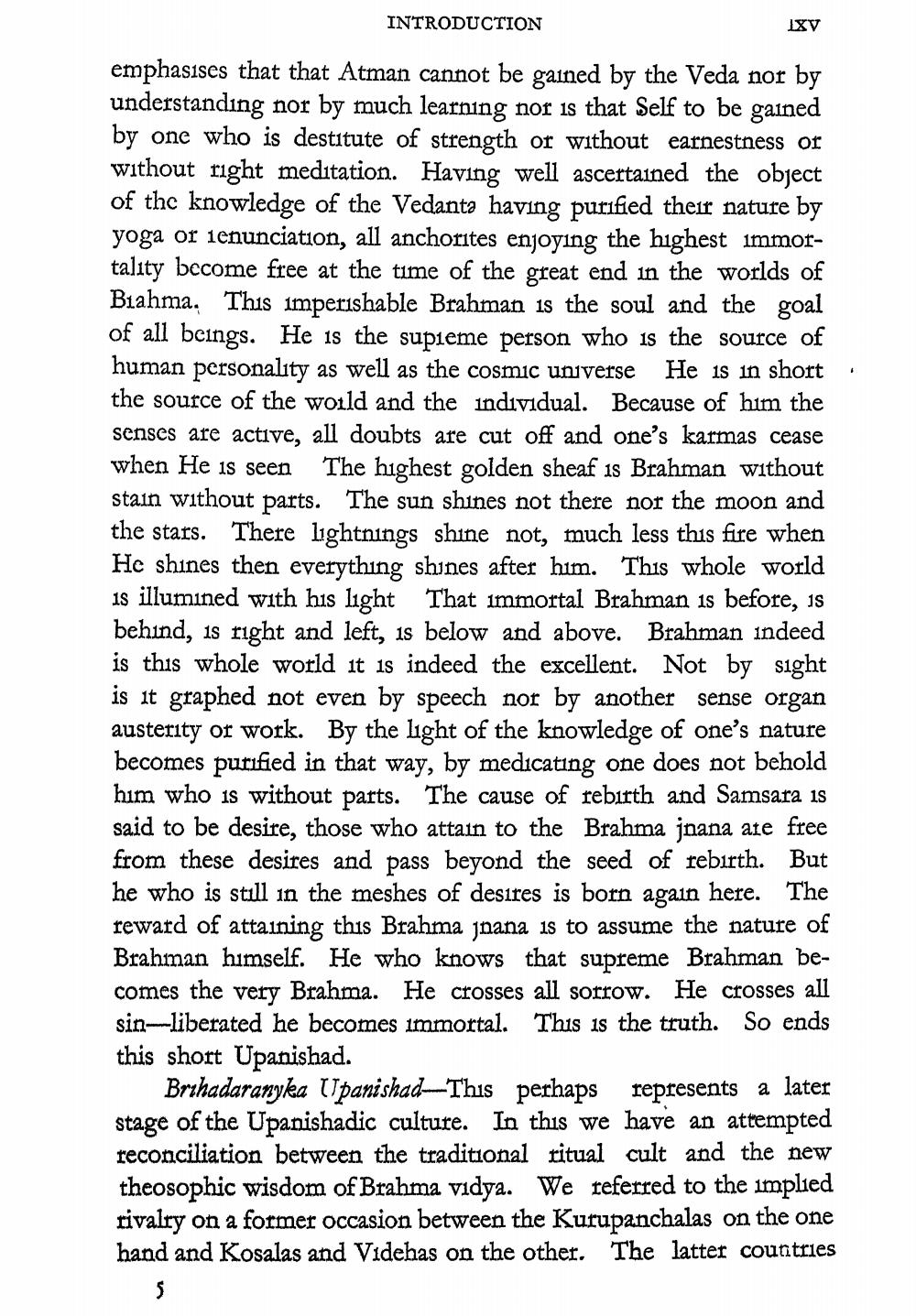________________
LXV
INTRODUCTION emphasises that that Atman cannot be gained by the Veda nor by understanding nor by much learning nor is that Self to be gained by one who is destitute of strength or without earnestness of without right meditation. Having well ascertained the object of the knowledge of the Vedanta having purified their nature by yoga or ienunciation, all anchorites enjoying the highest immortality become free at the time of the great end in the worlds of Biahma. This imperishable Brahman is the soul and the goal of all beings. He is the supieme person who is the source of human personality as well as the cosmic universe He is in short the source of the would and the individual. Because of him the senses are active, all doubts are cut off and one's karmas cease when He is seen The highest golden sheaf is Brahman without stain without parts. The sun shines not there nor the moon and the stars. There lightnings shine not, much less this fire when He shines then everything shines after him. This whole world is illumined with his light That immortal Brahman is before, is behind, is right and left, is below and above. Brahman indeed is this whole world it is indeed the excellent. Not by sight is it graphed not even by speech nor by another sense organ austerity or work. By the light of the knowledge of one's nature becomes purified in that way, by medicating one does not behold him who is without parts. The cause of rebirth and Samsara is said to be desire, those who attain to the Brahma jnana are free from these desires and pass beyond the seed of rebirth. But he who is still in the meshes of desires is born again here. The reward of attaining this Brahma jnana is to assume the nature of Brahman himself. He who knows that supreme Brahman becomes the very Brahma. He crosses all sorrow. He crosses all sin-liberated he becomes immortal. This is the truth. So ends this short Upanishad.
Brihadaranyka Upanishad-This perhaps represents a later stage of the Upanishadic culture. In this we have an attempted reconciliation between the traditional ritual cult and the new theosophic wisdom of Brahma vidya. We referred to the implied rivalry on a former occasion between the Kurupanchalas on the one hand and Kosalas and Videhas on the other. The latter countries




